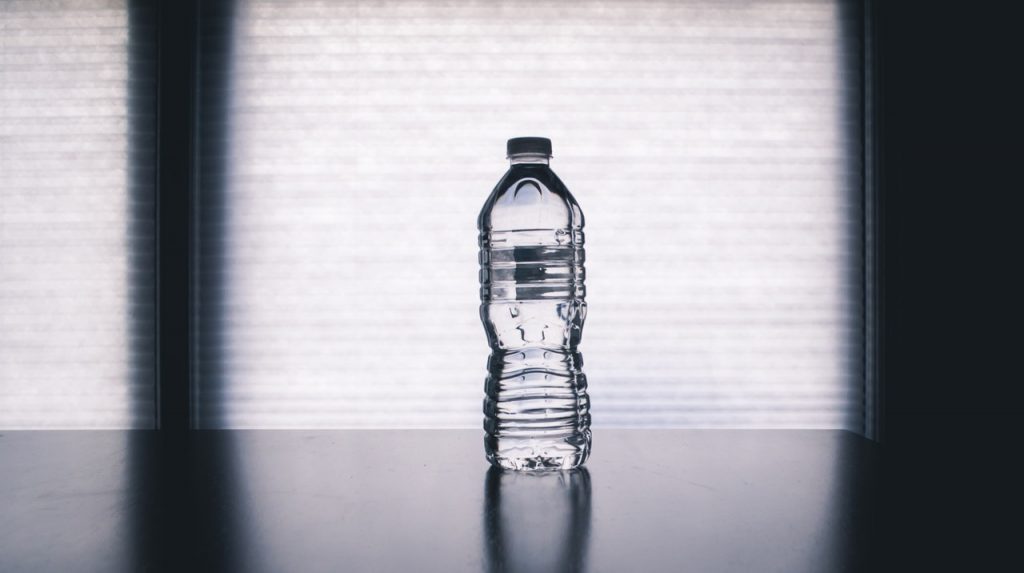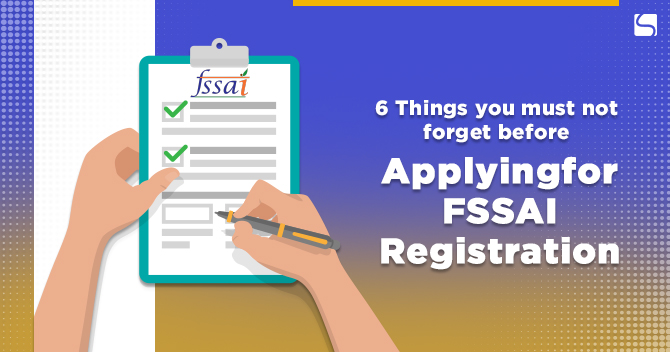FSSAI License for Packaged Drinking Water

Swarit Advisors | Updated: Dec 21, 2018 | Category: FSSAI
All packaged drinking water in India must get FSSAI registration. It has been noticed that the FSSAI department has been working proactively in relation to the compliance by the FBO in the water packaging business. If you have a business that deals in the water packaging then you must take a look at the FSSAI license compliance, we are going to talk about further in this article.
If we put our attention towards the food regulator FSSAI, they keep on cracking down on all the mineral water packaging units that are functioning without getting the License from FSSAI. Even if we look at the big names like Pepsico and Bisleri were earlier operating without FSSAI license. They were operating under the BIS certification only. According to the Food Safety and Standards Authority of India, there is no immunity or grade classification for the bottled water supply in India.
According to the report published in the Economic times, after checking up on the 5,842 water packaging units in India, which are legally registered; There are only 1,495 water packaging units which have both BIS and FSSAI license, on the other hand remaining water packaging units have only BIS certification.
If you have a packaging drinking water unit in India and is looking to get the FSSAI license for packaged drinking water then you just need to contact swarit advisors. Our team at swarit advisors consists of professionals who are thoroughly trained and will educate, help and guide you at every place they could.
Further, in this article, we will talk about which category of FSSAI license is applicable to Packaged drinking water, sources of water that can be used by these water packaging units, manufacturing standards for the business of water packaging, FSSAI packaging and labeling requirements for packaged water etc.
Table of Contents
Classes of FSSAI License
There are basically three types of FSSAI license which are applicable to packaged drinking water-
- FSSAI basic license– FSSAI basic license is for the retailers. This type of license is obtained by the businesses whose annual turnover is lesser than Rs. 12 lakhs.
- FSSAI state license– FSSAI state license is obtained by the businesses whose annual turnover is more than Rs. 12 lakhs and lesser than Rs. 20 crores.
- FSSAI central license– FSSAI central license is obtained by the businesses whose annual turnover is more than Rs. 20 crore or if your business has factories in more than two states.
FSSAI regulations cover the packaged drinking water. There are certain amendments incorporated by the FSSAI authority stated under the notification released on 15 November 2016 in relation to the packaged drinking water. These changes came into effect on the 1st of March 2017.
Sources of Water that can be used by the Water Packaging Companies
There are certain sources of water specified by the FSSAI department that a water packaging company can derive the water from-
- Surface water
- Civic water supply
- Underground water
- Seawater
- Any other consistent source of water
- Even so, the company who packages water has to take a look at the FSSAI licensing and standards, to make sure that the water supplied by these companies follows these standards so that it doesn’t cause any harm to the consumers.
- There is a list of certain requirements that need to be fulfilled by every packaging water which includes treatment like decantation, filtration, a combination of filtration, aerations, filtration with a membrane filter, depth filter, cartridge filter, activated carbon filtration, demineralization, remineralization, reverse osmosis etc.
- The water supplied by these water packaging companies has to be fully disinfected by using the chemical agents/ physical methods so as to bring down the level of microorganisms to make scientifically accepted in accordance with the Food safety and its suitability.
- If the source of water is seawater then it must be desalinized before it goes for the further treatments, mentioned above.
- These sealed containers must be of specified forms, capacities etc that must be suitable for direct consumption.
- There are certain food grades and pharma grade qualities which have to match up by the ingredients during the process of remineralization.
There is an initiative led by the FSSAI authority called “The Project Clean Drinking Water” in which the main aim is to provide clean drinking water and win the confidence of the consumers.
There is a proper logo stating the following lines-
“It is FSSAI’s promise or assurance regarding the purity of drinking water and that is safe to consume, as it has been meticulously tested”
And the symbol showing the fingers encircling signifies the complete purity of the packaged water, the blue color inside it tells you about the cleanliness (toxin free, no contaminants) and the water safe for the consumers.
Standards of Manufacturing for Packaged Drinking Water Layout by FSSAI
All the manufacturers involved in the packaged drinking water have to follow the microbiological standards for drinking water. In accordance with the standards, a package containing the 250ml of water has to be free from the following microorganisms-
- Escherichia coli (or thermotolerant bacteria)
- Coliform bacteria
- Fecal Streptococci and Staphylococcus aureus
- Salmonella Typhi
- Sulfate Reducing Anaerobes
- Pseudomonas aeruginosin
- Yeast and mold
- Salmonella and Shigella
- Vibrio cholera, and V.para hemolytic us
Apart from the microbiological standards, the manufacturer must also take care of the following parameters stated by the FSSAI. Below are the following parameters-
- Organoleptic and physical parameters
- General parameters concerning substances that are not desirable in more than required amounts
- Parameters regarding the toxic substance
- Parameters regarding the radioactive residues
- Parameters regarding the pesticide residues
The FSSAI authority, in relation to the regulations, 2011 states that all the water packaging businesses must furnish the analyst’s report.
Requirements for the FSSAI Packaging and Labeling of the Packaged Water
If we look at section 2 of the Food Safety and Standards (Packaging and labeling) regulations, 2011; the water contained in the packaging must be clean, hygienic, colorless, transparent and non-tampered bottles/ containers that must be made out of following materials-
| Materials that can be used in the packaging | ISI standard that a manufacturing unit must comply with |
| Polyethylene (PE) | IS:10146 |
| Polyvinylchloride (PVC) | IS:10151 |
| Polyalkylene terephthalate (PET and PBT) | IS:12252 |
| Polypropylene | IS:10910 |
There are certain limits regarding the overall migration and color migration limits that have to be met by the packaging water companies in relation to the plastic used by them.
Below are the declarations that have to be printed on every package in capital letters in accordance with the Regulation 2.3.3 of FSSAI (Packaging and labeling)-
“PACKAGED DRINKING WATER”
“NATURAL MINERAL WATER”
“BEST BEFORE”
“CRUSH THE BOTTLE AFTER USE”
Latest News Regarding the Packaged Drinking Water
There is an issue raised by the group of people to inquire is the packaged water we drink is safe for us or not? The Maharashtra Food and Drugs Administration (FDA) department has been looking into the matter since then and trying to find the reasons behind the following adulteration-
- The committee formed at Bhabha Atomic Research Center (BARC) has been looking into the matter and trying to find the truth behind the allegations made against the packaged drinking water.
- According to the report published by the researchers at Bhabha Atomic Research Center (BARC) stated that they have found the levels of bromate, which were more than necessary that is considered to be a harmful compound for the health.
- It was noticed in more than 27% of the packaged drinking water samples in Mumbai, after which FDSA of Maharashtra started their own investigation last week.
- According to the official from the Food and Safety Standards Authority of India (Western Zone), they have already set the limitation on the use of bromate in the packaged drinking water that is up to 10 milligram per liter (mg/L), in accordance with the prescribed international standards (World Health Organization).
- According to the report published by the BARC, 10.7mg/L of bromate has been found in the packaged drinking water in Mumbai. As researchers have said, there are health risks (Carcinogenic risk and hazard quotient) which are caused by the ingestion of bromate, chlorite, and chlorate present in packaged drinking water.
- FDA official said that earlier there were no confirmed guidelines for the required level of disinfectant used in the products of packaged drinking water manufacturing. They have surveyed as well regarding the same matter, which yielded no results.
- However, now the proper guidelines have been laid out by the FSSAI and have been taking samples from different water packaging units to test the presence of the hazardous chemical.
- According, to the scientists, if the bromate is present in packaged drinking water then there is a need to bring a change in the practice of filtration or completely ban it if required.
- The Cleaning process of drinking water involves a series of filtrations, which includes Reverse osmosis (RO), or ultrafiltration techniques, after which the water has to go under the ozone treatment; in this bromate, ingression is not allowed.
- Right after the study published by the BARC, there is a complaint registered with the national human rights commission (NHRC) by a health activist in Mumbai, looking for the action against the violators.
- In this case, the FSSAI was asked to furnish the report within four weeks, which in turn forwarded to the Maharashtra FDA, requesting them to further look into the matter and resort to the necessary action.
- If you are involved in the business of water packaging then you must keep on mind that the potassium bromate which was used as a disinfectant or preservative is already banned to be used in the food or water manufacturing practices all around the world.
- It has been proved after several studies that potassium bromate is hazardous for health and is a carcinogenic component.
- Potassium bromate, which is considered to be the main culprit in the adulteration of the packaged drinking water, was already banned in the use of baking bread during October 2016.
Deadly Results of Potassium Bromate usage According to the WHO fact file
- In relation to the research done by the international agency on cancer, WHO has placed potassium bromate in group 2B (possibly carcinogenic to humans), there is no adequate proof of carcinogenicity in humans, even so, the experiments were done on the animals, the proof of carcinogenicity is evident enough.
- There are several after effects of the bromate usage that includes nausea, vomiting, abdominal pain, anuria and diarrhea, varying degrees of central nervous system depression, hemolytic anemia and pulmonary edema.
- It also causes irreversible effects such as renal failure and deafness, which is the result of having the ingestion of 240-500 mg of potassium bromate per kg of body weight.
- On the other hand, there is a serious concern for the children due to the potassium bromate (ingestion of 60-120 ml of 2% of potassium bromate, which is equal to the 46-92 mg of bromate per kg of body weight per day for a 20-kg child.)
These are the few of the side effects of potassium bromate usage in your daily life.
If you have any query regarding the FSSAI license for packaged drinking water, do contact swarit advisors.
Also, Read: What are the Licenses Required to Open a Cafe?.














